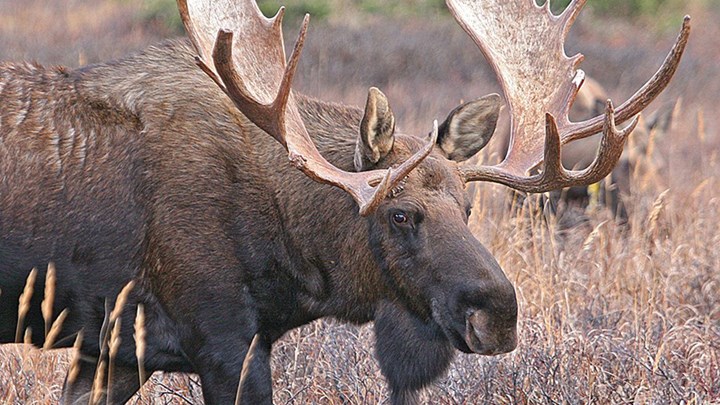
by Frank Miniter - Monday, April 22, 2019

In 2007 John Sturgeon, a resident of Alaska, was headed up Nation River within the Yukon-Charley Rivers National Preserve in northeast Alaska. He was motoring along on his hovercraft, an “amphibious vehicle” that can go over the shallowest water, to go moose hunting. Somewhere along the way his engine began to give him trouble so he landed the craft on a sandbar.
As reported in NRAHLF.org nearly three years ago to date, some park rangers approached Sturgeon and ordered him off his boat. They cited federal control of the waterway as they told him it was illegal to operate the noisy boat on the river. They said he couldn’t even turn around and go home and that the boat would have to be towed.
He sued.
In 2014 the 9th U.S. Circuit Court of Appeals rejected Sturgeon’s arguments that state law supersedes federal authority in this case. Sturgeon kept pushing his case anyway. He pushed it all the way to the U.S. Supreme Court. It was a longshot that the high court even would take the case, as it turns down the vast majority of cases sent to it on appeal.
Maybe other disputes regarding federal authority on the vast amount of land the National Park Service, Forest Service, Bureau of Land Management and other federal agencies control piqued the interest of justices. Whatever the reason, they took the case.
In 2016 the Supreme Court reversed the 9th Circuit decision and told it to take another look. The appeals court again ruled against Sturgeon. The Supreme Court again took up the case and heard oral arguments last year. Now the high court published its verdict. It is unanimous—9 to 0. It ruled that Sturgeon can head up river to hunt moose in his hovercraft. In the opinion, Justice Elena Kagan wrote that Sturgeon “can again rev up his hovercraft in search of moose.”
Specifically the court ruled that Alaska’s Nation River is not public land. Like all non-public lands and navigable waters within Alaska’s national parks, this river is then exempt under the Alaska National Interest Lands Conservation Act from the National Park Service’s ordinary regulatory authority.
This ruling affirms states’ rights. The federal government controls vast lands in the American West and Alaska. This ruling signals that the high court is willing to restrict federal power. This case has been a part of a long-simmering debate over public lands, water rights and federalism. The ruling is a victory for those who want more local control over lands in their states.
“The rules cannot apply to any nonfederal properties, even if a map would show they are within such a unit’s boundaries,” Kagan wrote. “Geographic inholdings thus become regulatory outholdings, impervious to the Service’s ordinary authority.”
Alaska’s congressional delegation, in a “friend of the court” brief supporting Sturgeon, showed it sees this case as being a big deal: “What is at stake here for Alaska, is not just a different view ... about permissible weekend recreation or the best method of routing tourists through national parks…. [U]nencumbered access to Alaska’s waters and meaningful use of Alaska’s natural resources is necessary to sustain life in much of rural Alaska.”
The delegation pointed out that there are many areas of Alaska that literally can’t be realistically reached without things like float plains and hovercrafts. Having a federal agency in Washington, D.C., rule that rural Alaskans have to live by some arbitrary regulation can have a big impact on whether such rural Alaskans can make it.
Meanwhile, arbitrary regulations on federal lands across the Lower 48 also can impact hunter access and more. The federal bureaucracy can be overbearing and out of touch with reality. This time common sense won. Perhaps this ruling will embolden others to challenge bad federal regulations.
Sturgeon says his next moose-hunting trip on the Nation River is set for September.
Follow NRA Hunters' Leadership Forum on Twitter @HuntersLead.
E-mail your comments/questions about this site to:
[email protected]
